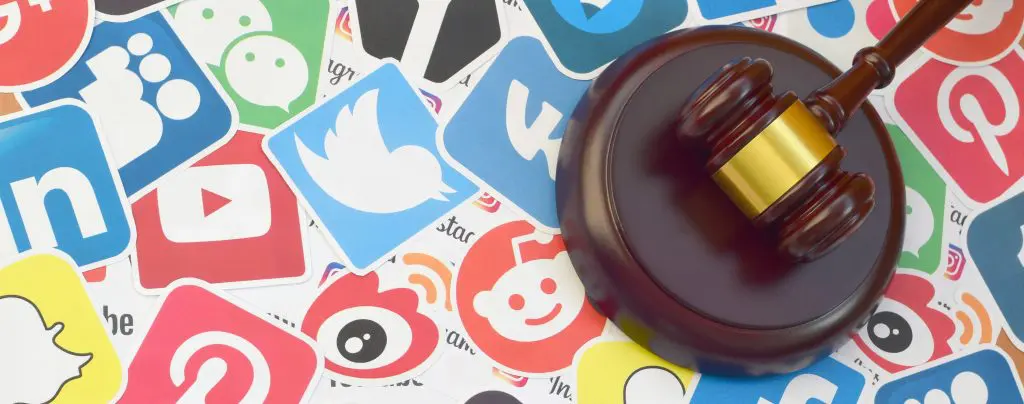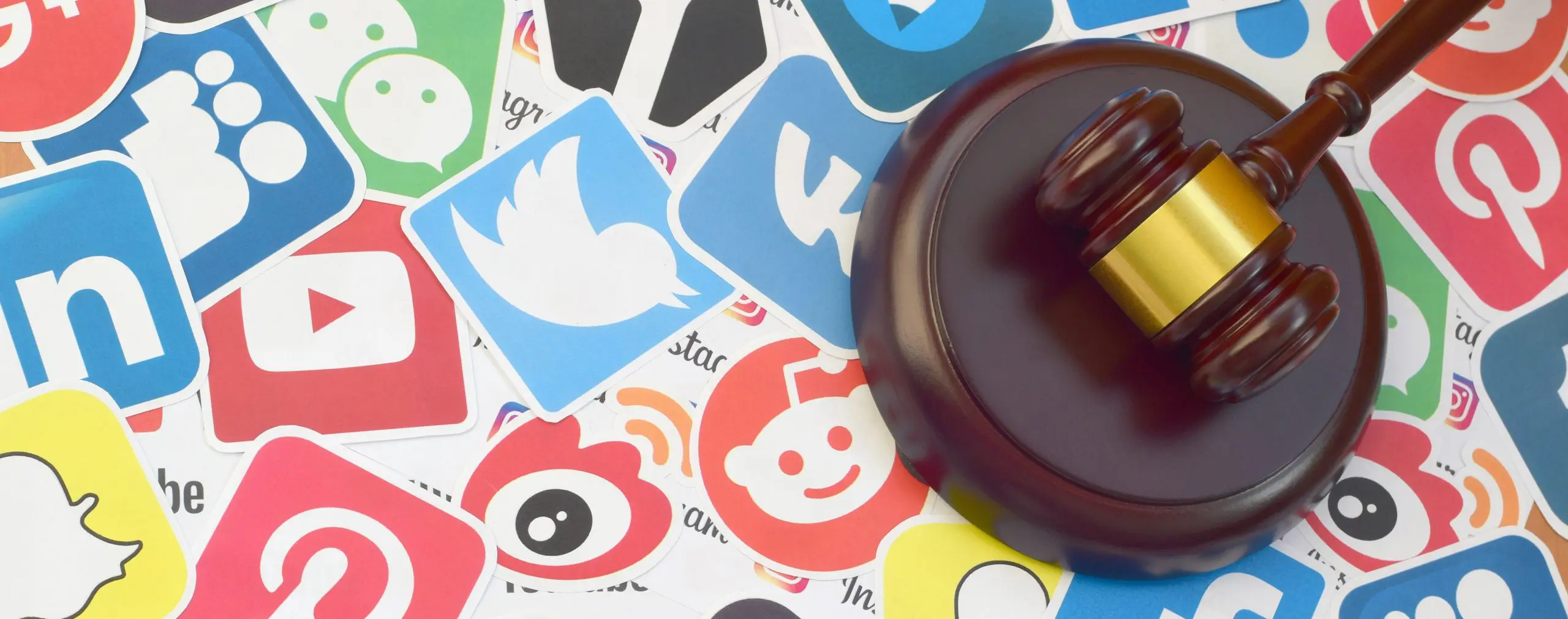Social Media Addiction Lawsuit Update 2024
September 9, 2024 by Susan MohrOverview Of The Social Media Addiction Lawsuit
The social media addiction lawsuit has become a focal point in legal discourse, capturing widespread attention as it addresses the complex relationship between technology companies and their users. The lawsuit, initiated by a coalition of concerned parents, mental health advocates, and former tech industry insiders, alleges that major social media platforms have knowingly designed their services to be addictive, particularly to younger users.

This case marks one of the most significant challenges to the tech industry’s business practices in recent years.
Central to the lawsuit is the argument that social media companies employ sophisticated algorithms and user interface designs to maximize user engagement. Plaintiffs contend that these tactics are not just about retaining users but are deliberately crafted to exploit psychological vulnerabilities. The complaint highlights how features like infinite scrolling, instant notifications, and variable rewards can create compulsive usage patterns that mimic substance addiction.
Legal experts suggest this case could set a precedent for how digital platforms are regulated regarding user health and safety. While previous lawsuits have tackled data privacy and monopolistic practices, this litigation delves into uncharted territory by focusing on mental health implications. The defense argues that users have agency over their online behavior and that safeguards are sufficient.
As proceedings unfold in 2024, stakeholders from various sectors—including technology ethics scholars, policymakers, and public health officials—will closely monitor developments. The outcome could reshape how social media platforms operate globally and influence future regulatory frameworks to protect consumers from digital harm.
Key Developments In The Case
In the ongoing saga of social media addiction lawsuits, 2024 has seen several pivotal developments that could shape the future of digital accountability and user safety. One major milestone was the court’s decision to allow a class-action status for the plaintiffs, significantly broadening the scope of the case. This ruling means that thousands of affected individuals can now band together to seek justice, amplifying their collective voice against tech giants accused of fostering addictive behaviors through their platforms.
Another critical development came with the revelation of internal documents from one major social media company, disclosed during discovery. These documents allegedly show that executives were aware of the addictive nature of their algorithms but chose not to act due to potential profit losses. This evidence has fueled public outrage and added substantial weight to the plaintiffs’ claims, suggesting a pattern of negligence and prioritization of revenue over user well-being.
Furthermore, expert testimonies have played an instrumental role in this phase of litigation. Psychologists and former tech insiders have provided compelling insights into how specific design features—such as infinite scrolling and notification badges—are intentionally engineered to exploit psychological vulnerabilities, perpetuating compulsive usage patterns among users.
initiated parallel investigations into deceptive practices related to user engagement metrics and data privacy concerns. These probes could lead to substantial fines or stricter regulations for social media companies, adding another layer of complexity to an already high-stakes legal battle.
As these key developments unfold, they underscore an increasing societal demand for greater transparency and ethical responsibility within the digital landscape.
Testimonies And Evidence Presented
In the recent developments of the social media addiction lawsuit, testimonies and evidence presented have painted a compelling picture of the impact that these platforms can have on individuals’ mental health and daily lives. Several plaintiffs, ranging from teenagers to adults, gave heartfelt accounts of their struggles with social media addiction. They described how their usage spiraled out of control, leading to significant declines in academic performance, professional productivity, and personal relationships.
For instance, one young adult recounted how he spent 12 hours daily on various platforms, neglecting his studies and isolating himself from friends and family.
Expert witnesses in psychology and neuroscience provided crucial insights into the addictive nature of social media algorithms. Dr. Emily Harrison, a renowned psychologist specializing in digital addiction, testified about how these platforms are designed to exploit basic human psychological needs for approval and social connection. She presented research demonstrating that frequent use can lead to increased anxiety, depression, and other mental health issues.
Moreover, internal documents from major social media companies were introduced as evidence. These documents revealed discussions among executives acknowledging the addictive potential of their products yet continuing to prioritize user engagement metrics over users’ well-being.
Collectively, this body of testimonies and evidence underscores the urgent need for regulatory reforms aimed at mitigating the harmful effects of social media addiction while holding tech companies accountable for their role in exacerbating this growing public health concern.
Legal Arguments From Both Sides
In the ongoing social media addiction lawsuit of 2024, both the plaintiffs and defendants have presented robust legal arguments to support their respective positions. The plaintiffs, comprising a coalition of concerned parents, mental health advocates, and former social media users, argue that the companies behind these platforms have knowingly designed their products to be addictive. They allege that these companies employ sophisticated algorithms and psychological manipulation techniques to maximize user engagement at the expense of mental health.
The plaintiffs claim this constitutes negligence and intentional infliction of emotional distress, citing numerous studies linking excessive social media use to anxiety, depression, and other mental health issues.
On the other hand, the defense argues that users voluntarily engage with their platforms and that it is ultimately up to individuals to regulate their usage. They assert their algorithms are designed primarily for user satisfaction rather than manipulation. Furthermore, they contend that there is insufficient scientific consensus directly linking social media usage to severe mental health problems in a way that meets the legal standards for causation in tort law.
The defense also invokes First Amendment rights, arguing that imposing restrictions on how they design their platforms could impinge upon free speech and innovation.
As both sides present compelling evidence and expert testimonies, the court faces a challenging decision regarding how to balance corporate responsibility with individual accountability and broader societal implications regarding technology’s role in daily life.
Potential Impact On Social Media Companies
The potential impact of the ongoing social media addiction lawsuit on social media companies in 2024 is significant and multifaceted. These companies may face substantial financial, operational, and reputational repercussions as legal scrutiny intensifies.
The financial costs of defending against such lawsuits will likely be considerable. If found liable, companies might have to allocate substantial resources for legal defenses, settlements, or fines. These financial burdens could impact on their profitability and market valuations, leading to investor uncertainty and potential stock volatility.
The lawsuit could compel social media giants to overhaul their platform designs and algorithms. If regulations or court mandates require these companies to implement stricter measures to mitigate addictive behaviors, it could alter how they engage users. Features designed for prolonged user interaction might need reevaluation or removal. This shift could reduce user engagement metrics crucial for advertising revenue models.
Reputationally, the very nature of being embroiled in an addiction lawsuit can tarnish a company’s public image. Social media platforms thrive on user trust and engagement; negative publicity could erode this trust and lead to declining active users. Moreover, advertisers may become wary of associating with platforms perceived as harmful to public health.
In conclusion, social media companies are at a crossroads. Legal outcomes from addiction lawsuits could significantly reshape their financial landscapes, operational frameworks, and public perceptions.
Future Implications And Next Steps
The future implications of the ongoing social media addiction lawsuit in 2024 are poised to be far-reaching, potentially reshaping the landscape of digital interaction and corporate responsibility. If plaintiffs prove that social media companies knowingly designed platforms to be addictive, it could set a precedent for how tech companies are held accountable for user well-being. This could lead to stricter regulations and oversight, compelling companies to implement more transparent algorithms and provide clearer disclosures about the potential risks associated with prolonged use.
One critical implication is the potential for a ripple effect across various technology sectors. Companies beyond social media, such as online gaming and video streaming services, might also face scrutiny regarding engagement tactics. The broader tech industry could see an increased push towards ethical design practices prioritizing user health over profit margins.
Moreover, this lawsuit could catalyze further research into digital addiction and its impacts on mental health. Governments and academic institutions might allocate more resources towards understanding these phenomena, leading to better-informed public policies.
Regarding the next steps, we can expect legislative bodies worldwide to closely monitor this case’s outcome. Should it result in significant rulings or settlements, new laws may emerge to curb addictive design features across digital platforms. Additionally, advocacy groups will likely continue pushing for greater transparency and accountability from tech giants.
While the immediate outcomes remain uncertain, the long-term effects promise a paradigm shift in how society navigates its increasingly intertwined relationship with technology.
Get started before your competitors do …there is a limit to how many clients we can onboard.
CONTACT US FOR A QUOTE. CALL 866-695-9058 OR USE OUR REQUEST A QUOTE FORM.
Susan Mohr
Mohr Marketing, LLC
CEO and Founder


Recent Posts
- Top 10 healthcare digital marketing strategies
- How to Rank Higher on Google Maps
- Ranking on Google Maps: Boost Your Local Visibility
Categories
- AI and Lead Generation
- Business Financing
- Call Verified MVA Leads
- Car Accident Help
- Car Accident Settlements
- Claimant Funding
- Compliance Program
- Google Maps Ranking
- Healthcare Practice Growth
- Law Firm Growth
- Law Office Operations
- Lead Generation
- Lead Generation For Attorneys
- Lead Generation For Chiropractors
- Lead Generation For Criminal Attorneys
- Lead Generation For D&A Treatment Centers
- Lead Generation For DUI Attorneys
- Lead Generation For Eye Doctors
- Lead Generation For Family Law Practices
- Lead Generation For PI Law Firms
- Lead Generation For Plastic Surgeons
- Leads For Healthcare Professionals
- Leads For Insurance Industry
- Legal Leads
- Legal Marketing
- Legal Updates
- Mass Tort Leads
- Medicare and Medicaid Leads
- Merchant Funding Leads
- Online Marketing Strategies
- Pre-Settlement Funding
- Signed MVA Cases
- Tort Updates
- Truck Accident Settlements
- Web Design
Archives
Copyright © 1994-2025 Mohr Marketing, LLC. All Rights Reserved.


